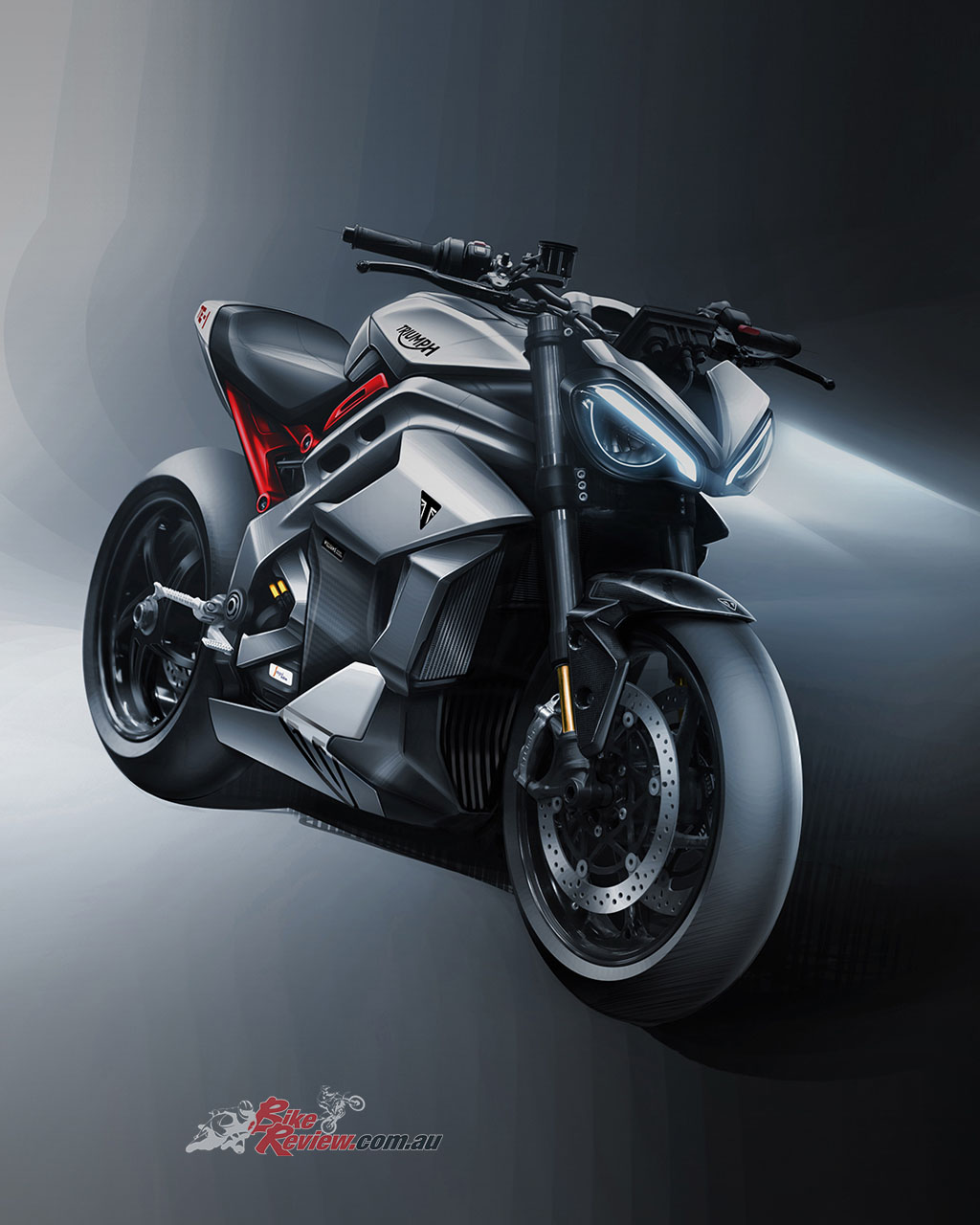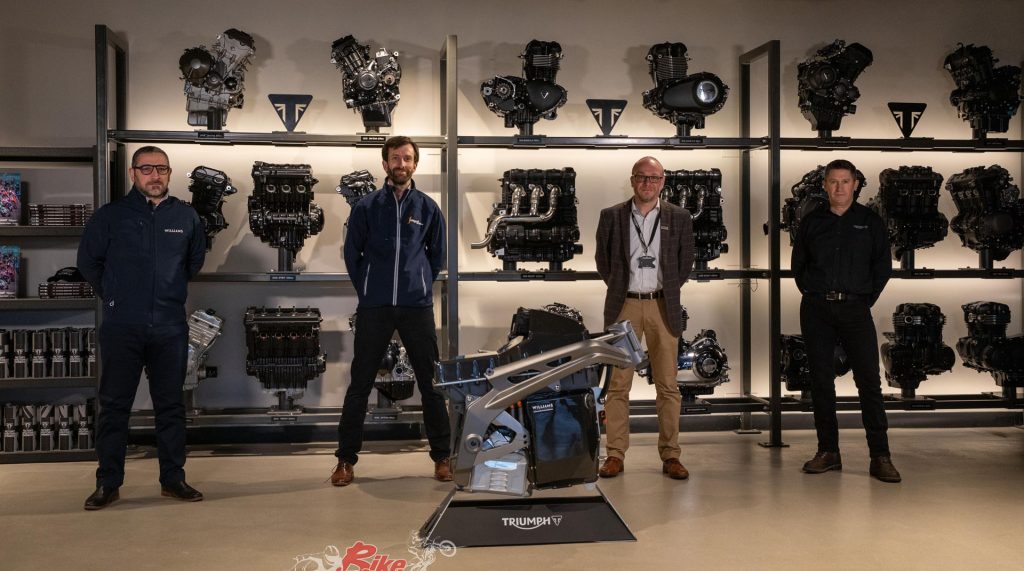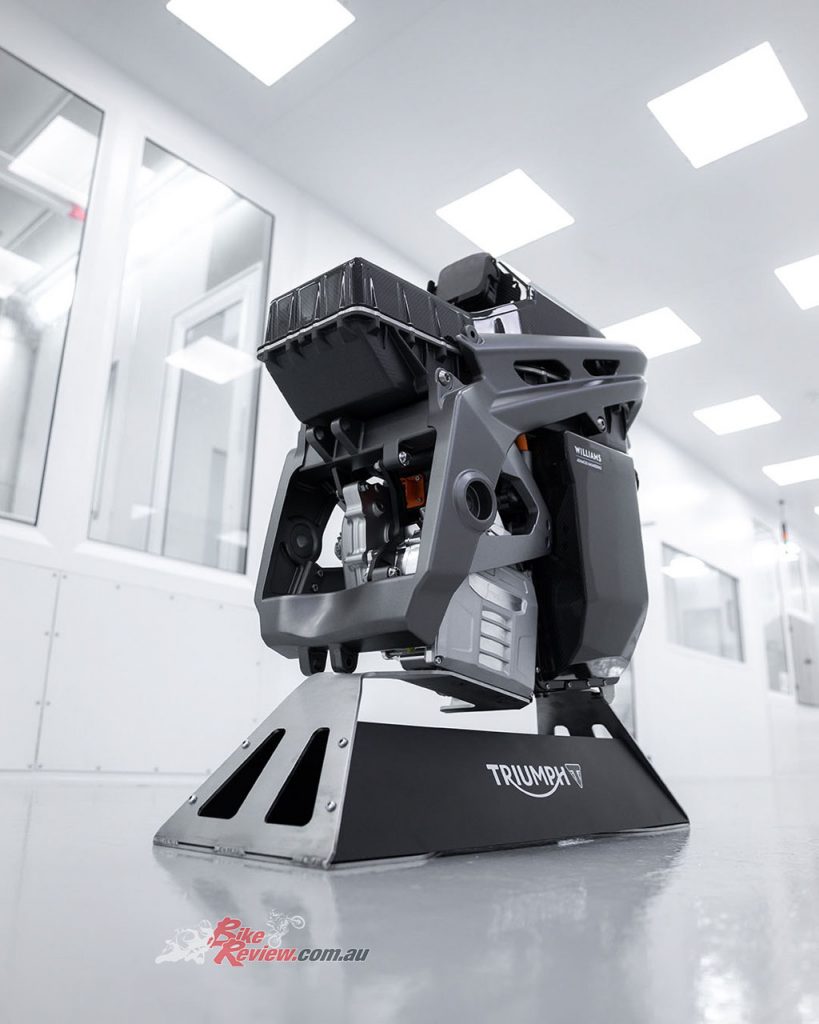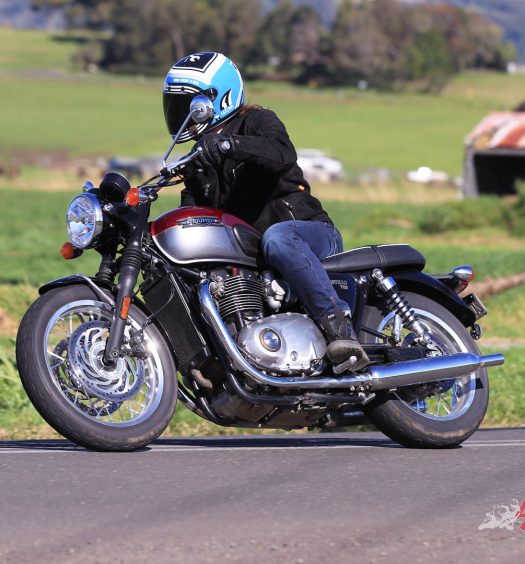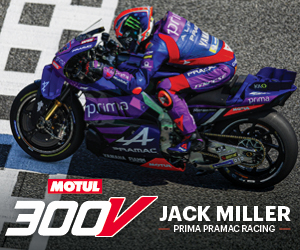Triumph's electric bike concept has hit phase two of its development. Working closely with a number of different engineers, Triumph is looking to the future of motorcycling.
Project Triumph TE-1 Prototype is a collaboration between Triumph, Williams Advanced Engineering, Integral Powertrain Ltd and WMG. A preview of the future, the TE-1 is said to exceed all current performance levels in electric motorcycles. It looks pretty cool, too.
Delivering on the objectives announced at the start of the TE-1 project in May 2019, focused on developing specialist electric motorcycle technology and innovative integrated solutions, this unique collaboration between Triumph Motorcycles, Williams Advanced Engineering, Integral Powertrain Ltd, and WMG at the University of Warwick funded by the Office for Zero Emission Vehicles, has already achieved significant results.
Check out our Electric Motorcycle reviews here…
Including innovation in battery and powertrain design, initial test performance results far exceed the current benchmarks and industry targets. Developments in performance, efficiency and range is enabling Project TE-1 to fully deliver the partnership’s objectives to enhance the credibility and profile of British industry providing substantial input into future electric motorcycle strategy from Triumph.
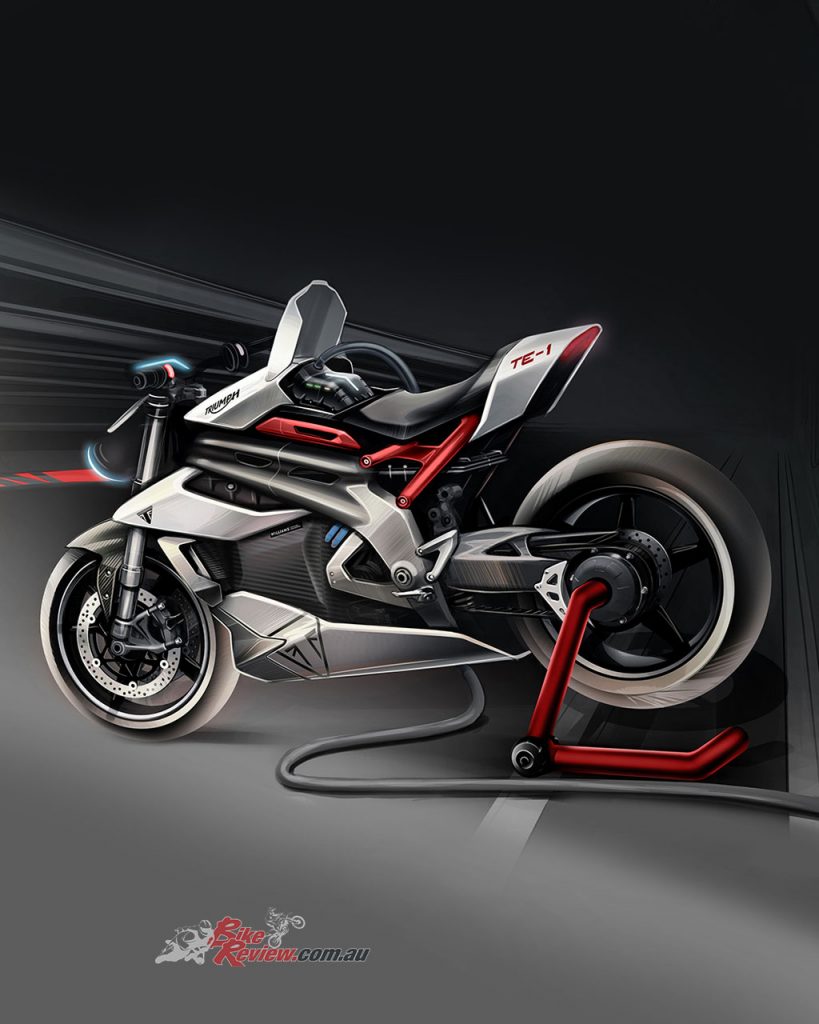
The first drawings look stunning, we are hoping that it doesn’t stray too far from the concept in production.
Announcing the completion of Phase two – with the reveal of the battery and powertrain prototype, initial high level performance results, and the first design concept drawings for the Project TE-1 Prototype motorcycle that will be created at the end of the next phase, Triumph say the objective of this two-year project is focused on developing electric motorcycle capabilities – providing an input into Triumph’s future electric motorcycle offer, driving innovation, capability and new intellectual property, enhancing the credibility and profile of British industry.
Integral’s experience in cutting edge motor, inverter design and manufacture has helped Triumph to push this technology on to the next level for the TE-1 project. In Phase one Integral worked to integrate the normally separate motor and inverter into one single, compact, package. Integration reduces the mass and volume of the drivetrain by reducing additional boxes on the vehicle, mounting features, coolant pipework and heavy high voltage connections.
The innovative integration concept is also a fully scalable one, whereby the number of power stages can increase for larger diameter, higher torque motors for example. Combined Integral’s state-of-the-art motor technology, they have seen very exciting results already, with the motor achieving a power density twice that of the target set by the UK Automotive Council for 2025.
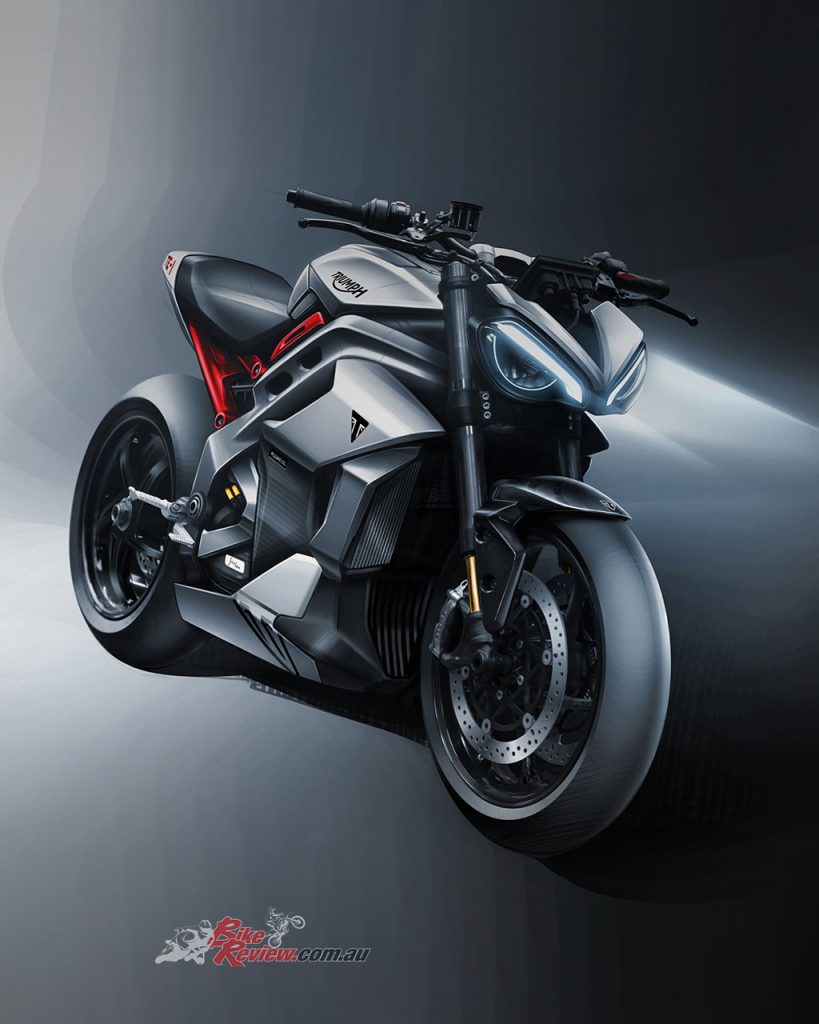
While not everyone may be on board for the cross over to electric, you can’t deny that the concepts look amazing.
Pulling all of this together with the partners Triumph say they are thrilled to see the progress of such an exciting demonstration vehicle which incorporates the cutting-edge technology needed to guide the strategy for the future roadmap of electric motorcycles from Triumph.


